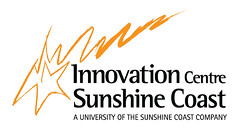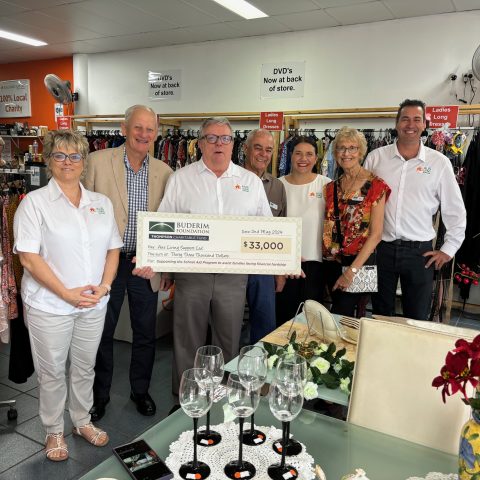 As part of the University of the Sunshine Coast, the Innovation Centre is working to turn its ‘mini-city’ of 30 plus dynamic businesses into a huge student-learning laboratory.
As part of the University of the Sunshine Coast, the Innovation Centre is working to turn its ‘mini-city’ of 30 plus dynamic businesses into a huge student-learning laboratory.
Sippy Downs has been tagged as ‘Australia’s no-worries-answer to Silicon Valley’ by CNBC, a leading European business magazine, and is increasingly becoming recognised as Australia’s first dedicated university town. The University of the Sunshine Coast’s Innovation
Centre is home to more than 30 entrepreneurial businesses from a range of knowledge based industries that not only boosts the local economy, but provides a ‘living learning laboratory’ of real experience across digital, cleantech, creative and health related industries for USC students.
Innovation Centre CEO, Colin Graham said the learning opportunities allowed students to tap into the talents of some of
professionals with worldwide experience running businesses from the Innovation Centre.
Mr Graham said working with the University, the Innovation Centre is developing a strategic plan to enhance the academic environment by providing students with work integrated learning and networking opportunities as well as specialised training for aspiring entrepreneurs.
He said inspiration for this leading?edge approach was sparked by visit he made to the Rensselaer Polytechnic Institute’s Incubation Program in the New York State, USA, where he immediately identified some of the practices to work with the on?campus businesses to enrich the learning environment could also work well in Australia.
The Australasian Survey of Student Engagement in 2009 highlighted that students’ experience in work-integrated forms of learning is seen as an important part of university studies and ensuring students are ready for the workforce. This has long been the case in areas such as medicine and veterinary science and is now seen as important for virtually all disciplines. In this 2009 survey, 69% of teaching staff said ‘Work Integrated Learning’ was very important in developing communication skills relevant to the discipline, and 56% said is was very important for improving knowledge and skills for employability.
“The Innovation Centre’s Learning Lab concept gives students the opportunities to access leading entrepreneurs in real life businesses including the exposure to opportunities and challenges that
can’t be easily mimicked in the classroom,” Colin said.
According to Australia’s 2008 Higher Education report, both private and public providers have indicated the lack of students who are graduating ‘job-?ready’ leading to arguments for an integrated higher education learning program that provides students with real?life experience and qualifications.
“Most industries are now demanding job applicants to possess both educational qualifications and ‘on the job’ experience. Having a degree is not longer enough, employers want the whole package,” Colin said.
The Learning Lab concept enables students to engage with dynamic businesses through work experience, student projects, internships, business events and guest lectures, providing students with the opportunity to access and network with the Innovation Centre’s 30+ resident companies and its impressive network of over 8,000 professional contacts.
We also offer an entrepreneurship program, which assists students to develop their own business ideas. The entrepreneurship program was developed with assistance from the Centre for Entrepreneurial Learning at the University of Cambridge in 2007, we also ran a student survey in 2009 that showed that 20 per cent of USC students were aspiring entrepreneurs wanting to open their own businesses.
“Recognising a need to cater for this niche group, USC’s Faculty of Business worked with the Innovation Centre, to develop a new course focusing on entrepreneurship that gives students the chance to interact with industry experts, benefit from one to one mentoring and even includes a mock-up version of televisions ‘Dragon’s Den’ where students present their innovative ideas before a panel of experienced entrepreneurs and expert advisors.
As part of this initiative, the Innovation Centre has just opened a ‘Start-Up Studio’ for entrepreneurial USC students to use on a hot desk basis, to develop their business ideas and tap into business networks and events.
“The Learning Lab idea is about promoting mutually beneficial relationships. Not only do the students gain real world experience but it also creates an opportunity for businesses to work with talented students to boost their business growth,” Colin said.
Just two of the business providing learning opportunities for USC students are iApps – an Apple Software Developer, which specialises in creating applications for the new iPad – and online marketing experts, Traffika.
“Working with students allows us to make the best use of our resources by reducing costs and increasing productivity and we help students to develop practical and valuable skills in new ‘in demand’ areas like programming for iPads,” iApps Managing Director, Rick Hoy said.
The Innovation Centre also connects and communicates with students via Facebook and LinkedIn and two successive students have acted as its ‘Student ambassador’, to directly link students with opportunities with companies based in the Innovation Centre.
For the latter half of 2009, the Student Ambassador found learning and work experience opportunities for 64 students with Innovation Centre businesses – around half of these were part time employment roles or formal internships and the other half involved students working in small project teams as part of their course on areas such as marketing research, advertising campaigns and strategy reviews.



